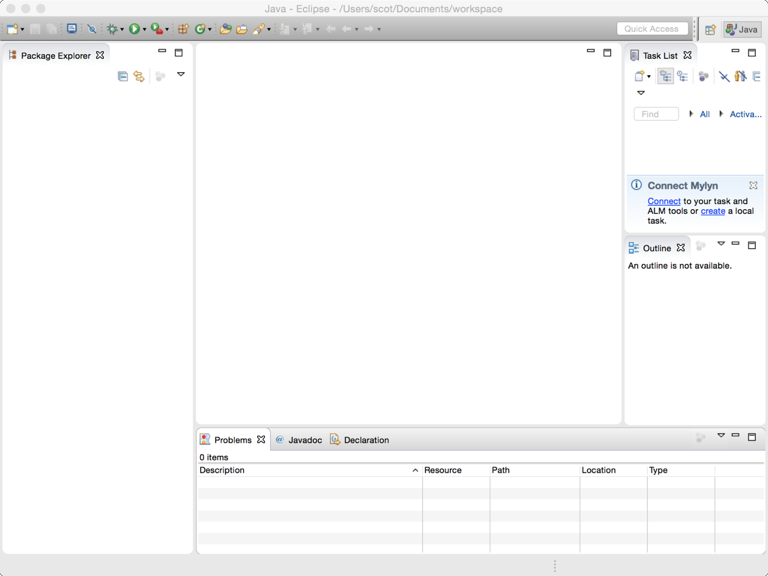

- #Mac update to java 8 for eclipse how to
- #Mac update to java 8 for eclipse mac os x
- #Mac update to java 8 for eclipse install
- #Mac update to java 8 for eclipse full
To install previous or specific versions of JDKs, you can get them from AdoptOpenJDK: $ brew tap adoptopenjdk/openjdk Install Specific Versions of Java (Java8, Java11, Java13) To install the latest version of Java, all you need to do is: $ brew cask install java Install Latest Version of Java Using Brew Next, install Homebrew Cask $ brew tap homebrew/cask-versions If not, you can install it via: $ ruby -e "$(curl -fsSL )" Pre-requisitesīefore we start, make sure you have Homebrew installed on your Mac.

#Mac update to java 8 for eclipse how to
In this article we show how to install Java on Mac using Homebrew, and how to allow to switch between different versions such as Java8, Java11, Java13 and latest Java version. To uninstall 7u4 orħu5, remove the 1.7.0.You can have multiple versions of Java on your Mac. *The 7u4 and 7u5 releases were installed into aĭirectory that does not follow this format. This directory is part of the system softwareĪnd any changes will be reset by Apple the next time you perform an jdkĭo not attempt to uninstall Java by removing the Java tools from Remove the directory whose name matches the following Navigate to /Library/Java/JavaVirtualMachines and To uninstall the JDK, you must have Administrator privileges andĮxecute the remove command either as root or by using the sudo(8) usr/libexec/java_home -v 1.7.0_06 -exec javac -versionįor more information, see the java_home(1) man page.
#Mac update to java 8 for eclipse full
To run a different version of Java, either specify the full Java HotSpot(TM) 64-Bit Server VM (build 23.2-b04, mixed mode) Java(TM) SE Runtime Environment (build 1.7.0_06-ea-b13) If the installed version is 7u6, you will see a string that You can determine which version of the JDK is the default by It is possible for the version of the JRE to be different than the version of the JDK.

When launching a Java application through the command line, the system uses the default JDK. There can be multiple JDKs installed on a system – as many as you wish. You are still using a version of Apple Java 6 that includes the plug-in and the
#Mac update to java 8 for eclipse mac os x
Determining the Default Version of the JDKĪ: If you have not yet installed Apple's Java Mac OS X 2012-006 update, then Click the ReadMe for more information about the installation.Īfter the software is installed, delete the dmg file if you want to save disk space. The software is installed and a confirmation window appears. Type your password to allow this." Enter theĪdministrator login and password and click Installħ. A window appears which says "Installer is trying to install If you see this window, select Installįor all users of this computer to enable the continueĥ. The Install app displays the IntroductionĤa. pkg file Double click the package icon toĤ. A Finder window appears containing an icon of an open box and From either the Downloads window of the browser, orįrom the file browser, double click the.

The JavaFX SDK and Runtime are also installed and integrated into the standard JDK directory structure.ĭepending on your processor, the downloaded file has one of theġ. When you download the Java Development Kit (JDK), the associated Java Runtime Environment (JRE) is installed at the same time. JDK 7 Installation Instructions Installation of the 64-bit JDK on Mac Platforms To install a lower version of the JRE, first uninstall the current version. The one exception is that the system will not replace the current JRE with a lower version. Installing the JDK also installs the JRE. You cannot install Java for a single user. Wide basis, for all users, and administrator privileges are Note that installing the JDK on a Mac is performed on a system


 0 kommentar(er)
0 kommentar(er)
